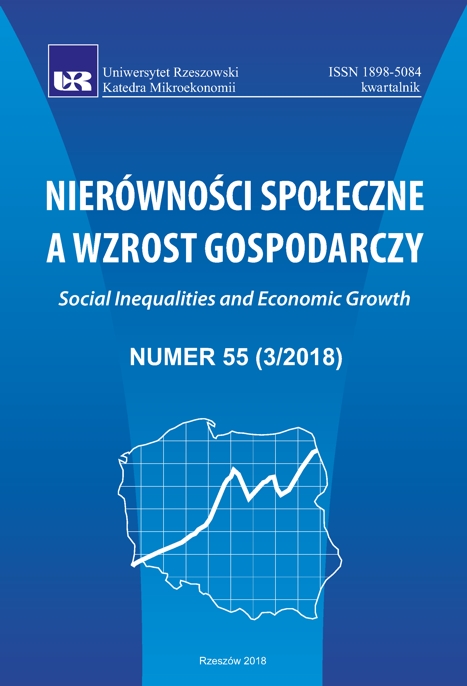Robots and automatic in the role of service providers. About social and cultural aspects of the digitization of the third sector of the economy
DOI:
https://doi.org/10.15584/nsawg.2018.3.26Keywords:
e-service, digitization, robotization, relationAbstract
This article touches upon the topic of changes in the classic service provision model, in the case of which the very act of service rendering is strictly connected with the necessity of establishing a direct contact between a service provider and an ordering party. Currently, services evolve into the form of self-servicing realized by means of utilization of the e-service model. In the initial part of the article, the author presents reasons of such a transformation: 1. popular culture of the 70s and 80s, which made the contemporary young generation to believe that the future would be filled to the brim with robots. Those kids and adolescents are now mature individuals, who were exposed to science-fiction in their youth and now attempt to make the so-called “cyber paradise” a reality; 2. business process improvement mechanisms created during the industrial age, realized especially by business automation; 3. big data representing the need of Orwellian invigilation, which has become a starting point for designing algorithms optimizing the process of business decision making and defining social groups in the attempt to launch more efficient marketing campaigns. The indicated sources of the discussed digital transformation of the service sector have led, according to the author, to numerous negative societal and cultural phenomena: 1. disappearance of direct relationships between service providers and ordering parties, the ability of establishment of which is, according to thinkers discussed within the scope of the article (G. H. Mead, M. Buber, J. Tischner, M. Heidegger) the sign of humanity; 2. the issue of social exclusion. The internet – the modern communication platform and a vital part of the e-servicing process has become, contrary to its initial aim, a tool of reproducing social divisions and animosities; 3. unemployment and related social pathologies, which are catalyzed by social support programs; 4. exceptional disproportions between the representatives of the poorest and the wealthiest parts of the global society. Mr. P.P. Nowak, by quoting the recommendations of the representatives of the Ecclesial Magisterium, exhorts us to revert to former values – establishing direct relationships in the course of service provision. A service-oriented civilization can be perceived as a gate to the civilization of love, about which John Paul the Second was talking so frequently.Downloads
Download data is not yet available.
Downloads
Published
2020-11-13
How to Cite
Nowak, P. P. (2020). Robots and automatic in the role of service providers. About social and cultural aspects of the digitization of the third sector of the economy. Social Inequalities and Economic Growth, 3(55), 374–386. https://doi.org/10.15584/nsawg.2018.3.26
Issue
Section
Articles
License
Copyright (c) 2018 University of Rzeszow

This work is licensed under a Creative Commons Attribution-ShareAlike 4.0 International License.


